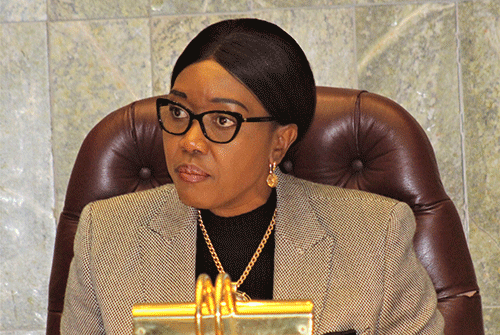Prime Minister Saara Kuugongelwa-Amadhila has called upon the non-state actor stakeholders to join hands with government in coming up with programmes to address social challenges facing vulnerable members of society.
Kuugongelwa-Amadhila made this call on Wednesday while officiating at a consultative workshop for the development of a vocational training and education programme on social development in Namibia.
The workshop is a brainchild of the United Lutheran Theological Seminary Paulinum and the Diaconia College of Finland.
They came together to spearhead the process of developing a programme to address social issues facing the country’s communities such as; family disintegration, poverty, unemployment, HIV and AIDS, gender-based violence, alcohol, and drug abuse through vocational and technical training.
According to the October 2020 Socio-Economic Impact Assessment of Covid-19 in
Namibia, overall poverty is
expected to increase by an estimated 4.2% as a result of loss of income. This will leave approximately 105 600 more Namibians vulnerable and in urgent need of social protection.
“Let’s make maximum efforts to re-build our economy and regain the progress we have lost as a result of Covid-19. “As the saying goes, ‘a society is judged by how it takes care of its most vulnerable members’. Let’s optimise this forum to integrate issues and work out a way forward to address numerous challenges facing us as a nation and as a global community,” she told delegates at the workshop which included Public Service Commission (PSC) employees and government officials.
Kuugongelwa-Amadhila also called on the public sector sphere to join hands in fighting drugs and alcohol abuse, gender-based violence, violence against children and other social ills eating into the fabric of society.
She said churches have not only been an advocate for social well-being of communities through the provision of evangelical services but it has also been a champion for the advancement of the physical well-being of communities through the provision of social services, such as healthcare and education and training.
According to her, during the dark period of colonialism when indigenous communities were subjected to the worst form of deprivation, the church has been, at times the only source of social services to communities, as it understood well the linkage between physical and spiritual welfare and between human development through education, training and healthcare and economic development.
“Most of the pioneers amongst the black political and business leaders, civil society and academia are products of church educational institutions,” she said.
Kuugongelwa-Amadhila said apart from the legal and policy instruments aimed at promoting socio-economic development and curbing crime, there is a need to also invest in pro-family policy options and social services personnel, for increased victim support, in order to promote strong, happy and healthy families and communities, and counter the erosion in the moral fibre of society.
However, she said she is happy that the programme to be introduced will equip participants to provide professional services in that regard.
“I am also pleased that the focus of this diploma in social development is on bridging the gap between the conventional academic pursuit and vocational training, by exposing participants to work with diverse individuals in an integrated way through family, community life and social network, including economic and social well-being,” she said.


